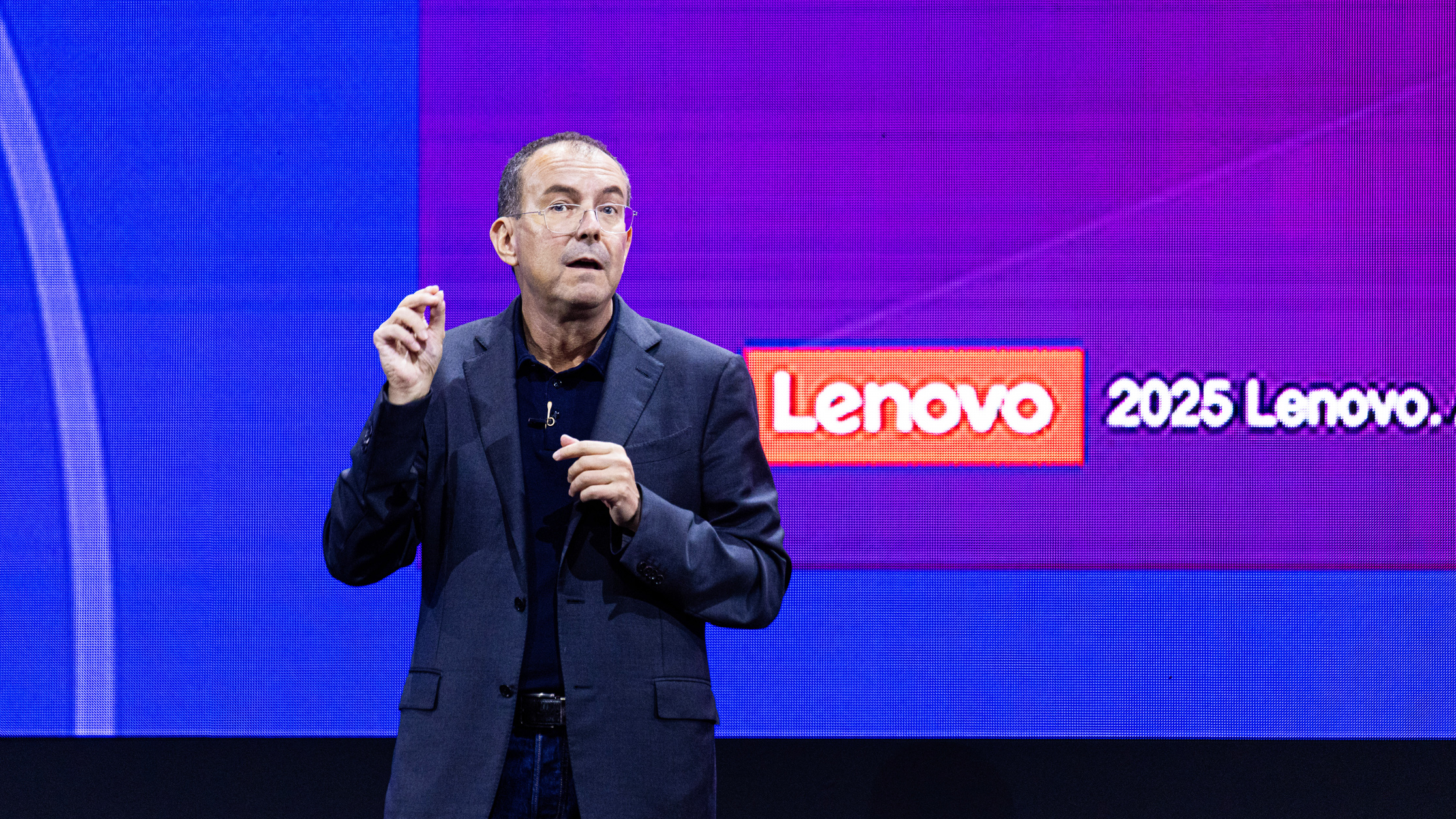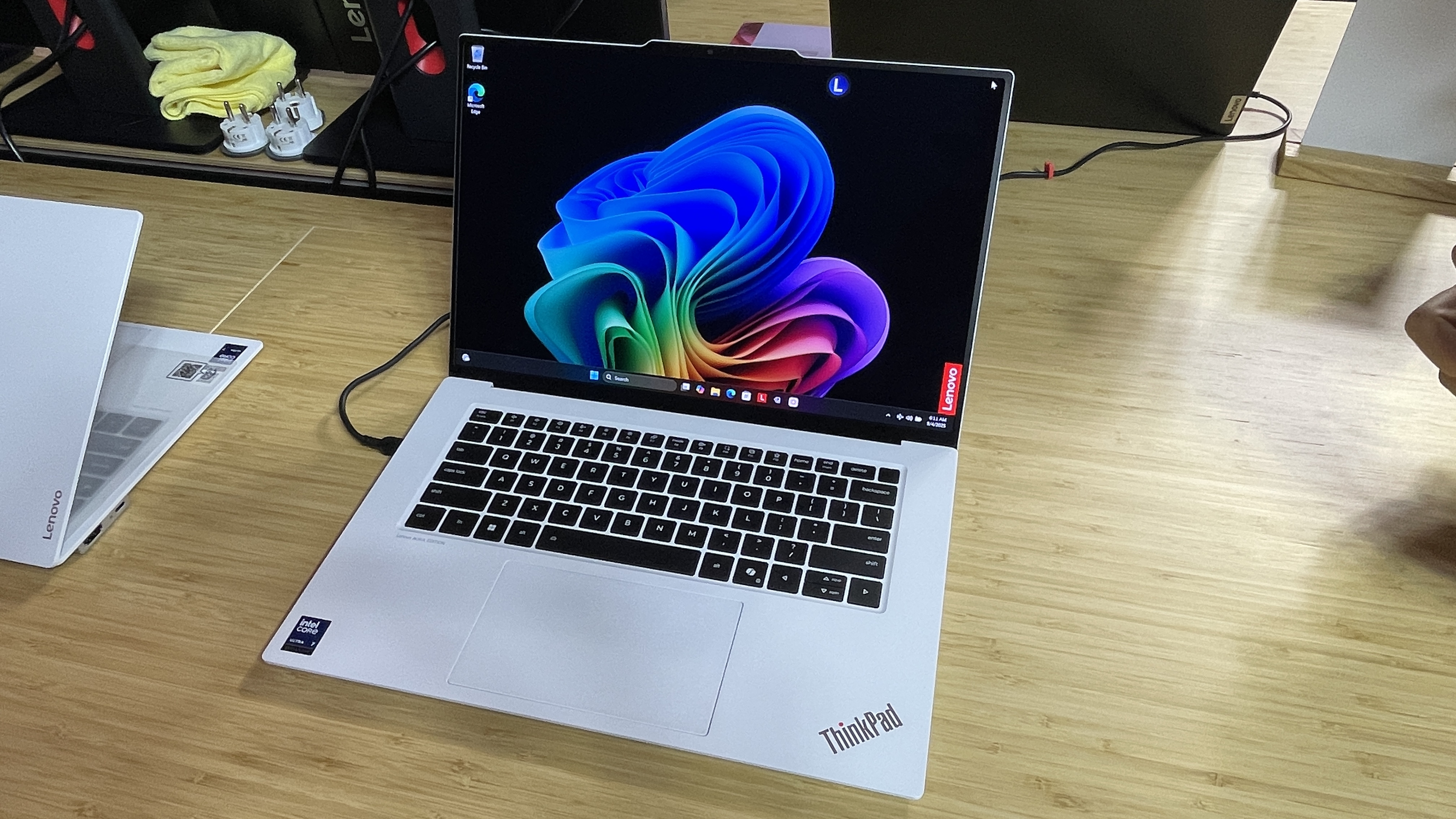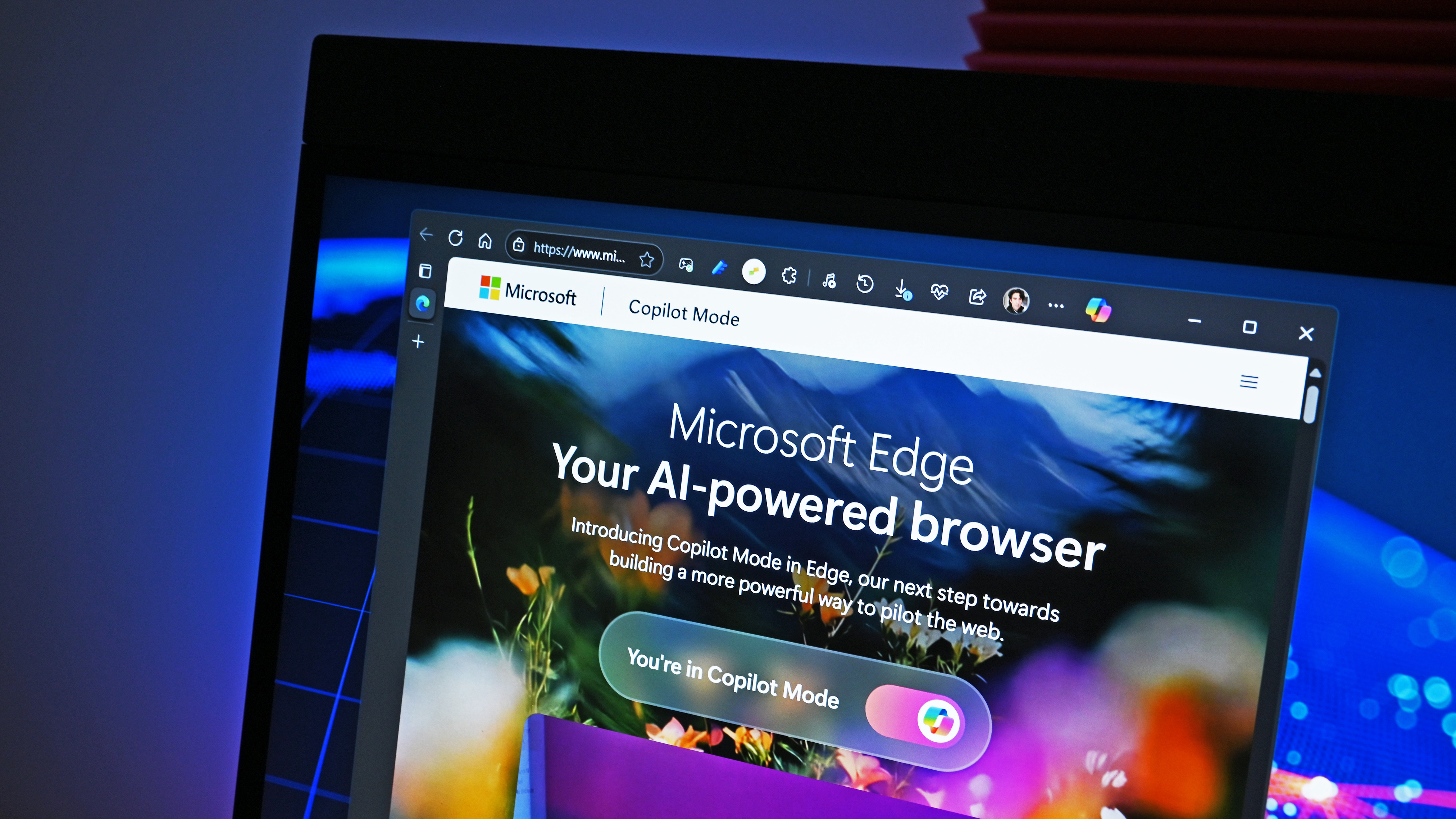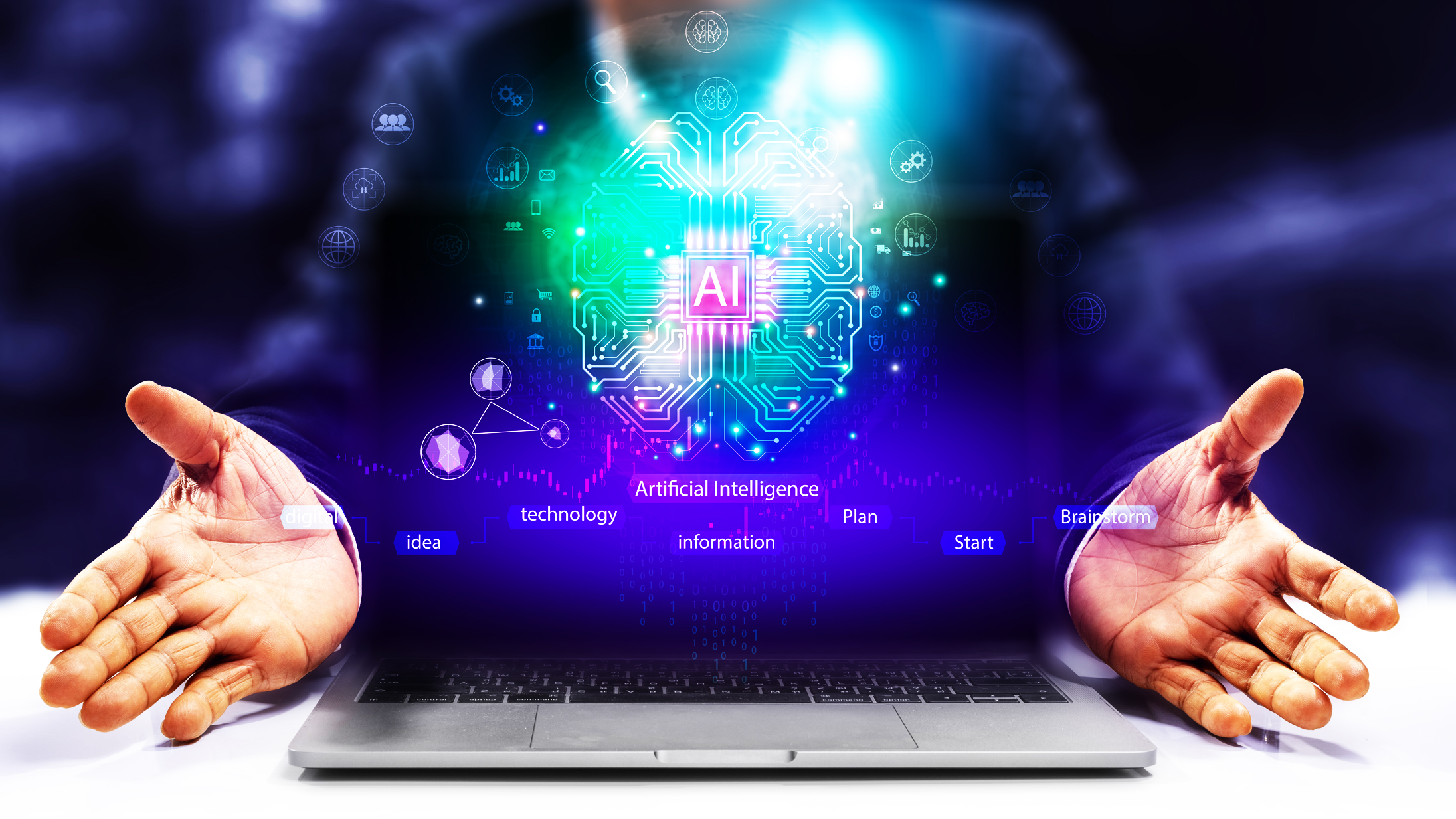
All the latest news, reviews, and guides for Windows and Xbox diehards.
You are now subscribed
Your newsletter sign-up was successful
IFA 2025, the annual tech convention hosted in Berlin, was a huge event for Lenovo. From a new TrackPoint-less ThinkPad in a Glacier White color scheme to new foldable phones to AR glasses, gaming handhelds, and laptop prototypes, the company showed off a full gamut of new hardware.
Luca Rossi, Lenovo's Executive Vice President and President of Intelligent Devices Group, hosted the IFA keynote speech before sitting down in a roundtable discussion at which I was present.
The topic? AI and AI PCs, of course.
Despite growing concerns about AI causing an explosive market bubble, the fact that only about 5% of AI pilot projects make it beyond an incubation stage, or that AI is stealing jobs from young professionals at an alarming rate, Lenovo's senior leadership believes AI PCs are primed to completely take over the market.
All PCs will be AI PCs within five years — here's how that happens
Putting Lenovo's AI PC progress into perspective, so far in 2025, global AI PC penetration has hit roughly 5%. Lenovo's share of that is about 30%, and Rossi claims that the percentage will likely rise to 50% in a year or a year and a half.
What comes after that? "Every PC will be an AI PC in four, maximum five years" is Rossi's prediction.
It's easy to assume that it's the killer AI features and apps that are driving that growth. Unfortunately, those don't yet exist. And if they did exist, Rossi doesn't believe that the vast majority of consumers would actually grasp and seek out AI capabilties.
I think there is a relatively modest percentage of users that fully understand and fully embrace their AI. [...] I will not give you a percentage, but I would say it's not a large majority of users.
Luca Rossi, Lenovo
Right now, the AI PC market is largely being driven by hardware.
AI PCs "are typically very sleek, very nice with 12 hour battery life," explains Rossi, "so they are very compelling, even if you take out the AI element." I can't argue with that, and the 2025 ASUS Zenbook A14 — one of the best Windows laptops we've ever tested even without considering the AI aspect — is proof.
There's also the matter of Windows 10's end-of-life fiasco that is forcing many users to upgrade PCs prematurely. Nevertheless, Rossi believes that AI PC growth will continue after the Windows 11 upgrade wave settles, even if that growth is slower than expert predictions.
PC hardware is ready for AI; now the software must catch up
AI PCs only really arrived in 2024, making a big splash as Microsoft announced Copilot+ laptops with AI features unique to Windows 11.
At launch, only Qualcomm's Snapdragon X Systems-on-Chip (SoC) had a Neural Processing Unit (NPU) powerful enough to run the Copilot+ features. Intel and AMD were quick to catch up, and you can now easily find Copilot+ PCs with all three brands of CPU inside.
Rossi aptly brands 2024 as the year that the groundwork for AI hardware was established. 2025 can be seen as the year where that hardware matured, with stronger NPUs more capable of running AI locally without tapping the cloud.
The near future, says Rossi, is now the software's time to come into its own. He names Microsoft and Adobe as being leaders in this area, but many of Lenovo's Independent Software Vendors (ISVs) are also clamoring to make use of local AI hardware.
This is the part where the industry is not yet there in terms of software, but based on our understanding and our conversations with ISVs, there are at least 80 to 100 ISVs that are now porting their applications to have the ability to use the NPU in the CPU and get the workload done.
Luca Rossi, Lenovo
When pressed about one "must-have" AI app that becomes the main selling point of an AI PC, Rossi says that's still to come.
Rossi's argument is that NPUs are a relatively new innovation that have only been on the market for a couple of years. The software hasn't had time to mature. Rossi compares the AI software situation to that of the early days of phone app stores, when it was hard to find that one app that really made a difference.
👉 Related: Best AI laptops in 2025
Compare that to now, and there are countless hundreds of apps that we all rely on to function in the modern world.
Returning to Copilot+ PCs, despite all of the marketing around Microsoft's initiative, it has failed to capture the attention of the masses. My colleague, Richard Devine, recently expressed his opinion about Copilot+, stating that he still doesn't care about it after a year of availability.
The future of AI computing is intent-based
While we're still waiting on the AI app that makes AI PCs a must-have, Rossi explains that he foresees computing moving toward an "intent-based world."
The operating systems for which Lenovo currently builds hardware, including Windows and Android, aren't going anywhere. At least not yet. But Rossi imagines a form of advanced assistant called "super agent" that blends brands and ecosystems, all the while delivering that intent-based future.
That means the machine or the agent will anticipate your needs and will trigger the application or the task you need autonomously over time. That means there will be a layer, which is the agent or super agent.
Luca Rossi, Lenovo
Rossi explains that super agents are already a reality in China, where AI seamlessly blends AI across desktops, laptops, wearables, and phones.
With Lenovo's dual-ecosystem OEM role and its CPU partnerships, Rossi believes Lenovo is in a unique position to pioneer this future of AI computing.
How will this new approach affect hardware design? It will be a slow progression of change, says Rossi. We'll still have the notebooks we know and love, but voice, gesture, and contextual awareness will begin to take over for keyboards and mice.
Rossi believes that wearables, like AR glasses, have the most potential for AI integration. Humans are already used to eyeglasses, they're comfortable to wear, and they could deliver AI directly within our field of view.
Of course, hurdles like compute power, battery life, and lens technology refinement must be taken into consideration.
It's all gas and no brakes for Lenovo's AI ambitions
If Lenovo's forecasts are correct, the AI PC market will eventually consume the PC market as we know it today. Super agents will seamlessly blend platforms and devices, and AI software will be too good to not be using.
Are you excited about that future, or are you skeptical of the envisioned AI future? Let me know in the comments section below!

Cale Hunt brings to Windows Central more than nine years of experience writing about laptops, PCs, accessories, games, and beyond. If it runs Windows or in some way complements the hardware, there’s a good chance he knows about it, has written about it, or is already busy testing it.
You must confirm your public display name before commenting
Please logout and then login again, you will then be prompted to enter your display name.



